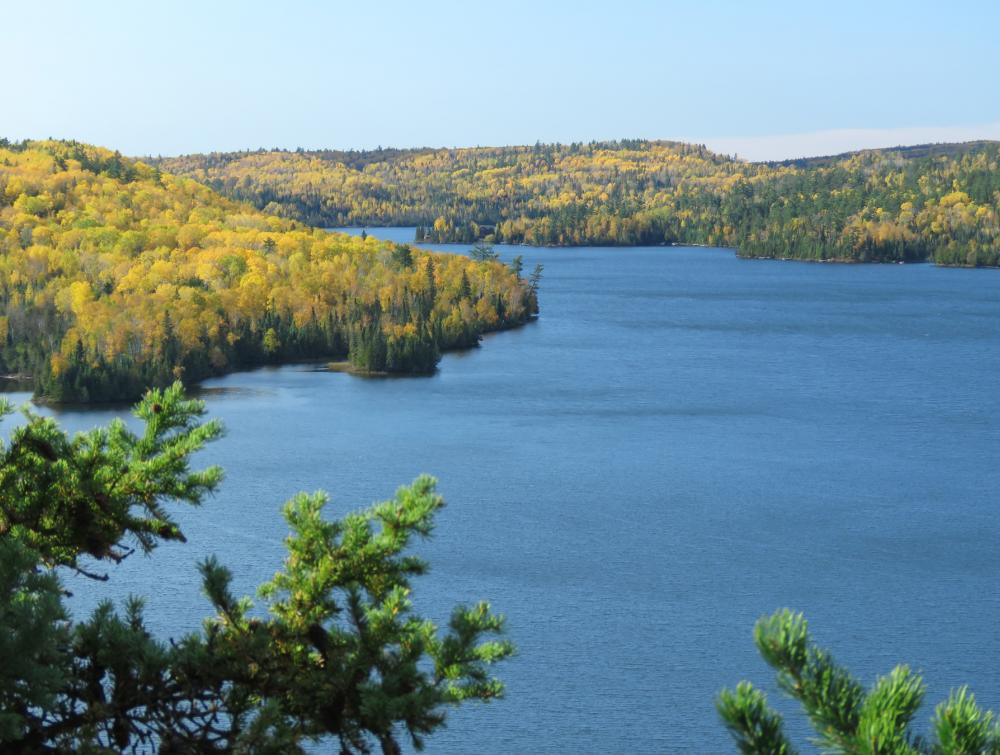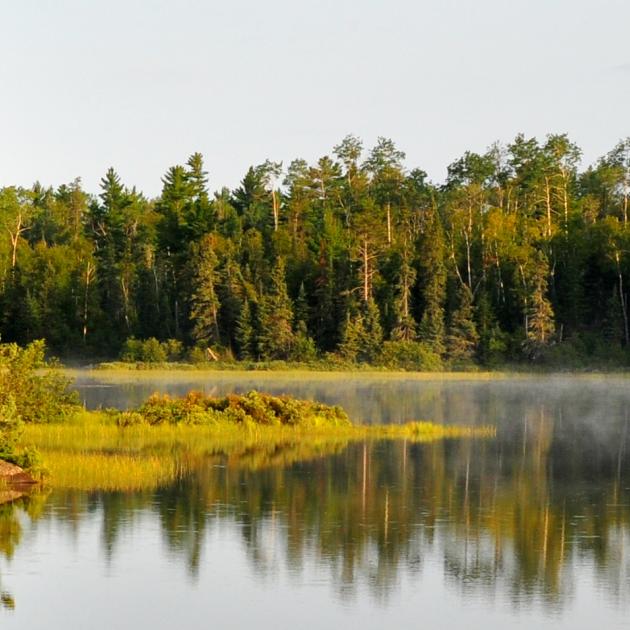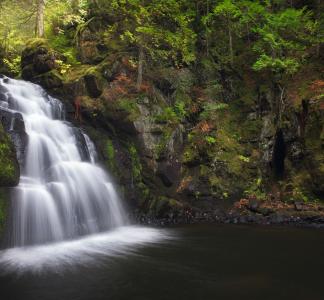Toxic mining leases canceled next to Boundary Waters wilderness

Boundary Waters Canoe Area Wilderness, MN
Steve Robertsen, USFS
Biden admin step protects long-threatened watershed
The Biden administration just took long-awaited action that represents a huge step toward permanently protecting the Boundary Waters from toxic mining.
On Jan. 26, the Department of the Interior announced it has cancelled the last two mining leases just outside the Boundary Waters Canoe Area Wilderness in the Rainy River Watershed.
The leases, owned by the company Twin Metals Minnesota, were illegally renewed by the Trump administration in 2019. Their cancellation blocks the immediate threat of a mining process that would leak sulfuric acid and toxic heavy metals into the sensitive watershed and contaminate lakes and rivers, potentially for thousands of years.
“The Boundary Waters Canoe Area Wilderness is simply too precious and too integral to the lives of Minnesotans to take a chance on a risky, toxic mine” - Jamie Williams, president of The Wilderness Society
This news comes just days after the close of a Biden administration comment period during which nearly to 250,000 people affirmed support for a 20-year mining moratorium next to the Boundary Waters.
Boundary Waters protection a key component of land and water conservation goals
The Boundary Waters Canoe Area Wilderness is the nation’s most visited wilderness area and the ancestral home of the Ojibwe people. Additionally, it’s a powerhouse for the $77 million local outdoor-recreation economy, which supports thousands of jobs. According to recent studies, allowing sulfide-ore copper mining in the area could cost the region up to $1.6 billion in lost annual income.
The Boundary Waters is also a perfect example of the kind of place we need to defend from reckless development if we’re going to meet “America the Beautiful” benchmark of protecting 30 percent of U.S. lands and waters by 2030.
A first-of-its-kind national conservation priority adopted by the Biden administration, that 30-percent goal is based on what experts say will give us the best chance at curbing the worst effects of climate change; adapting to the shifts already happening; preserving wild nature amid an ongoing extinction crisis; and ensuring communities have access to clean air, water and outdoor spaces.
The Boundary Waters Canoe Area Wilderness is rich with lakes, rivers, red and white pine forests and other habitat. It supports wildlife including wolves, moose and otters and boasts waters lively with pike, walleye and other fish. The Boundary Waters also sits on the Mississippi Flyway, a regional bird-migration path, and is a hallowed destination for spotting birds like loons and wood warblers, among hundreds of species.
Mining interests have targeted Boundary Waters for decades
Since the Bureau of Land Management issued the first two mineral leases on the doorstep of the Boundary Waters Canoe Area Wilderness in 1966, the landscape has been at the center of a tug-of-war between mining interests and those who want to the vibrant ecosystem left healthy and whole. Since 2012, the battle has been especially frenzied.
For decades, mining companies re-assigned and renewed those leases, stringing along a contract to develop that predates modern in-depth environmental scrutiny. After Twin Metals' leases expired in 2016, the Obama administration declared a mining moratorium and set in motion the process of considering a 20-year ban on mining next to the Boundary Waters. But Trump swiftly brought the Twin Metals leases back from the dead and cancelled the moratorium, setting the stage for toxic mining once again. The new action taken by the Department of the Interior cancels the Twin Metals leases—a huge and hard-fought victory.
“The Boundary Waters Canoe Area Wilderness is simply too precious and too integral to the lives of Minnesotans to take a chance on a risky, toxic mine,” said Jamie Williams, president of The Wilderness Society, in a statement. “We are thrilled that the Biden Administration recognizes the importance of safeguarding the Boundary Waters, and look forward to the day that permanent protections are passed in Congress.”




